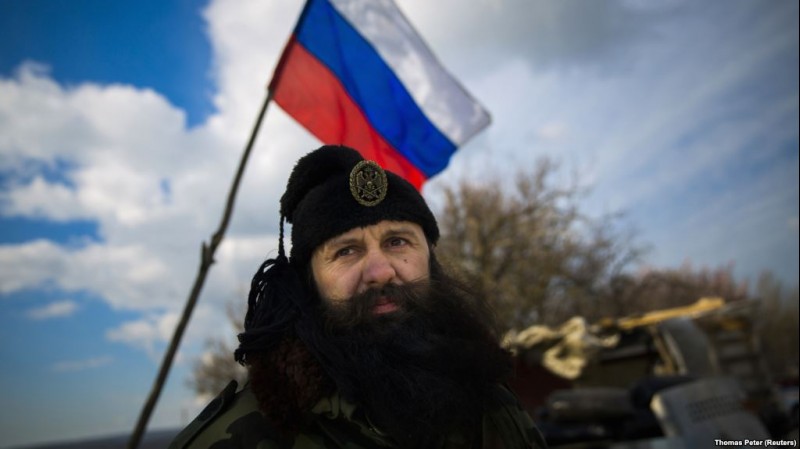- Home/
- News
Paramilitary Chief Arrested For Allegedly Joining Separatist War In Ukraine

Bratislav Zivkovic, head of the Serbian Chetnik paramilitary group, at a Russian checkpoint in Crimea in 2014.
Bratislav Zivkovic, the commander of the Chetnik paramilitary force in Serbia, has been arrested on suspicion of organizing a group of Serbs who joined Russia-backed separatists in their war against Ukraine's government, Serbia's Interior Ministry said on August 23.
"The suspect will be detained for up to 48 hours and he will be brought to the competent prosecutor's office along with the criminal charges,” the ministry told RFE/RL.
Zivkovic is under investigation in Ukraine for participating with six Serbians on the side of the separatists.
Zivkovic, 42, is also reported to have joined Russian forces that took control of Crimea when Moscow illegally annexed Ukraine's peninsula in 2014.
Ukraine's prosecutor-general is investigating charges that the Serbians participated in separatist attacks on government forces in the regions of Donetsk and Luhansk as part of an extreme right-wing organization called Unité Continentale.
Amendments to Serbia's criminal law in 2014 made it a crime for Serbian nationals to participate in foreign wars, with violations drawing penalties ranging from six months to five years in prison.
An individual who participates in a foreign conflict as part of a group faces imprisonment of one to eight years, according to the law.
Someone convicted of organizing participation in a foreign conflict faces a prison sentence of two to 10 years.
In February, the Higher Court in Belgrade announced 28 convictions against Serbian citizens who participated in the war in Ukraine.
All but two of them pleaded guilty and agreed to settle with the prosecutor's office. Four people were sentenced to prison, while others were sentenced to parole.
The Chetnik paramilitary group gained notoriety in the 1990s when its units committed atrocities against non-Serbs in Croatia, Bosnia, and Kosovo.
Source: Link


 Development of specialized PCVE web site is funded by EU FUNDS CN 2017-386/831 - "IPA II 2016 Regional Action on P/CVE in the Western Balkans"
Development of specialized PCVE web site is funded by EU FUNDS CN 2017-386/831 - "IPA II 2016 Regional Action on P/CVE in the Western Balkans"